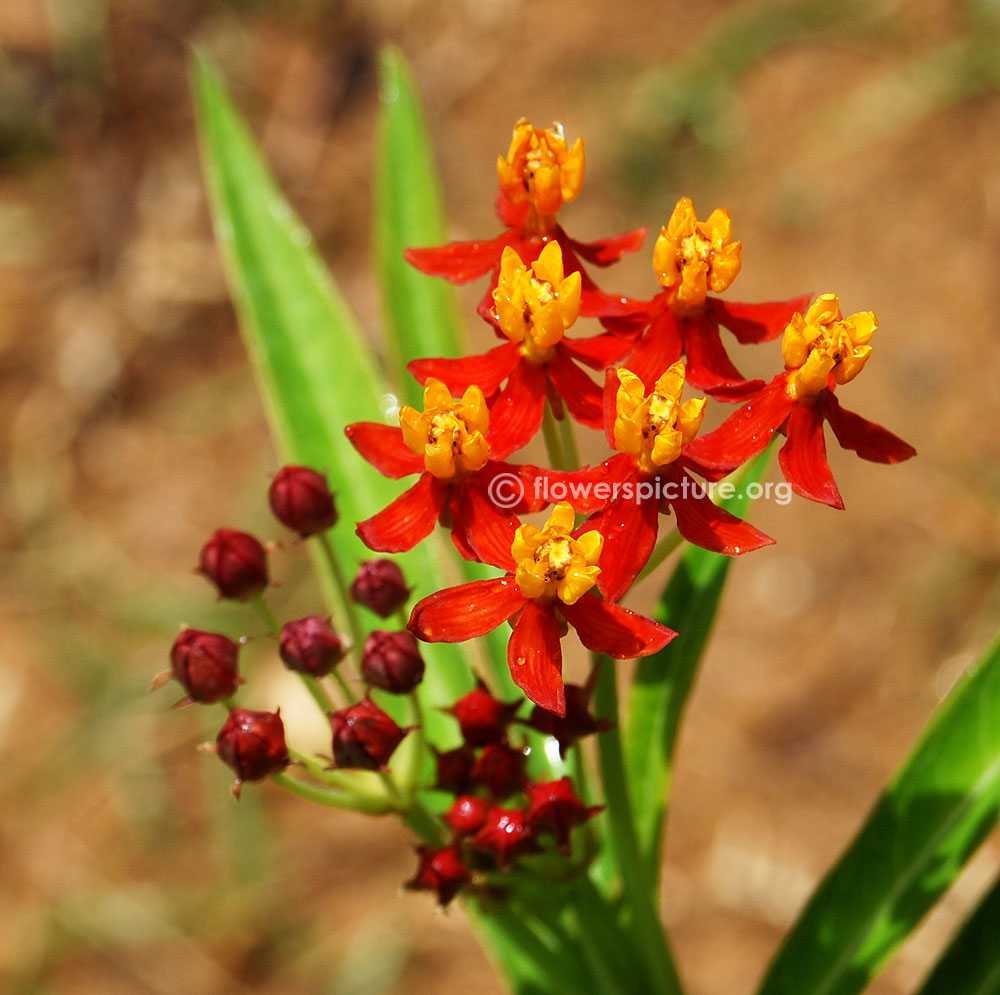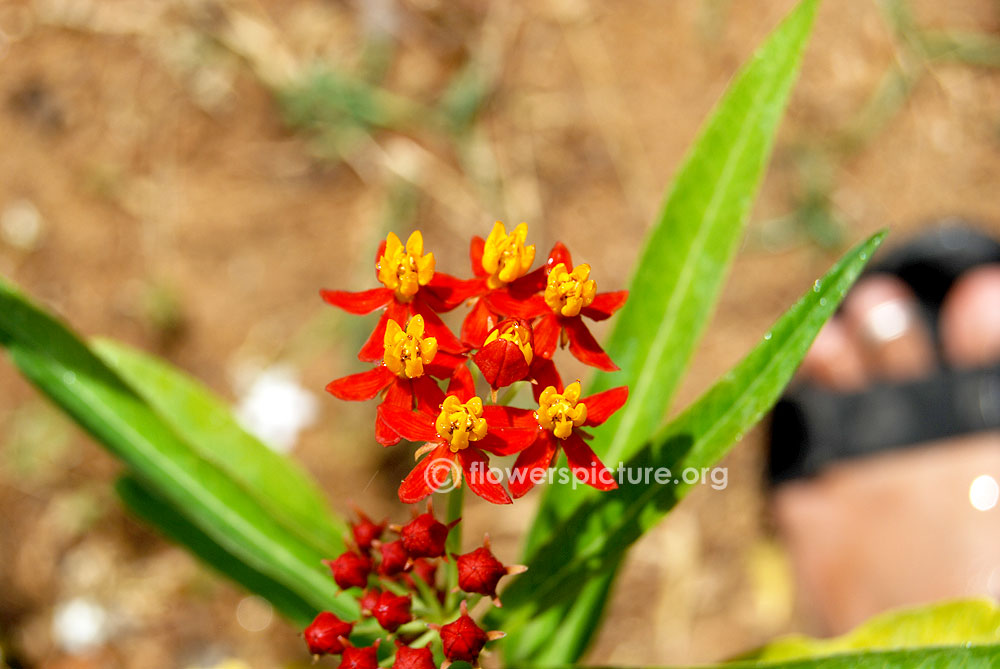- Flowers by Name A >Asclepias curassavica
Asclepias curassavica

Description - Perennials of the border and as cut flowers, natives of North America. In A.tuberosa the leaves are alternate, long and narrow, and each stem bears several flower-heads of small clustered flowers of brilliant orange to a height of two to three feet. The roots are tuberous and require to be planted in a partially shaded position where the soil has been enriched with leaf mould. It will require a year or so for the plants to become established, and they are best allowed to remain undisturbed. There is an even brighter form in the variety “vermillion”. Another species, A. incarnata , with opposite leaves, is occasionally seen in gardens where its flowers, borne in loose umbels and of a rather dull red-purple hue, are an attraction for bees. It is a native of swamps and grows well in moist soil. Others are A. purpurea, three to four feet, with lilac flowers, and A. speciosa, two to three feet, with fragrant purplish flowers.
Propagation is by seed sown as soon as ripe, requiring three years to attain the flowering stage.
The flowering season is in July and August
Kingdom - Plantae
Order - Gentianales
Genus - Asclepias
Origin / Native - South America
Category&Life Cycle - Annual, evergreen perennial herb, subshrub
Height - Up to 48 inches tall
Spread - Up to 36 inches wide
Flowers - Small, showy, red with yellow, 5 petals, clustered
Flowering colors - Red, yellow
Foliage - Green, glossy, lanceolate shaped, oppositely arranged leaves
Flowering Season - Spring to Fall
Blooming - All year-round
Flowering Month - May to October
Attracts - Butterflies, hummingbirds
Light Requirement&Care - Full sun, part shade, well drained soil, average water, low maintenance
Good For - Borders, Garden beds, Butterfly garden
Uses - Cut flowers, ornamental plant, medicinal
Special feature - Deer resistant
Propagation - Seed, stem cutting
Hazards - Broken stems and leaves are poisonous
Tropical milkweed flowers, buds

Flowers & Plants by Categories



































